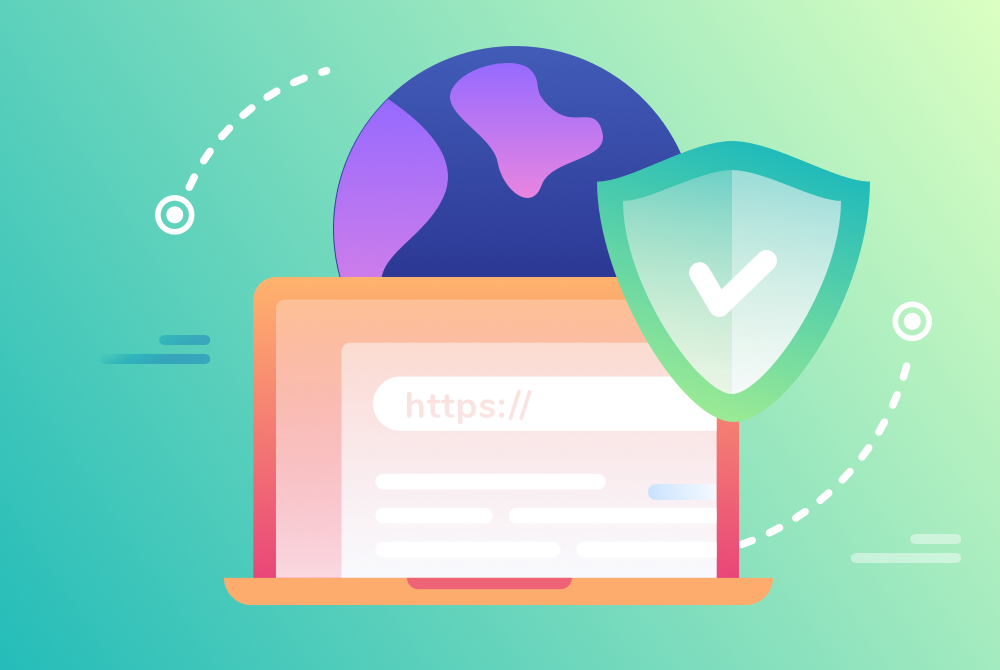Technology giants like Google, Apple, and Microsoft play a crucial role in global security. They develop tools and protocols that protect data and privacy.
Technology giants wield significant influence over global security. Their advanced tools, software, and protocols safeguard sensitive information, ensuring privacy and data protection. Companies like Google, Apple, and Microsoft continuously innovate to defend against cyber threats. Their efforts are vital in maintaining the integrity of digital infrastructure.
These tech behemoths collaborate with governments and organizations to set security standards. Their influence extends across various sectors, including finance, healthcare, and national defense. As cyber threats evolve, the role of these technology leaders becomes increasingly critical. Their commitment to security helps protect billions of users worldwide, making them indispensable in the fight against cybercrime.
Introduction To Global Security
In today’s interconnected world, global security is a pressing issue. Technology giants play a crucial role in shaping and controlling this landscape. This post delves into the current landscape and the role of technology in global security.
Current Landscape
Global security encompasses various dimensions, from cyber threats to physical safety. Governments and organizations prioritize protecting sensitive data and infrastructure. The rise of cyberattacks has made security a top concern worldwide.
Here is an overview of the current landscape:
- Increased cyber threats
- Growing dependency on technology
- Complex global geopolitics
- Heightened privacy concerns
Role Of Technology
Technology giants such as Google, Amazon, and Microsoft significantly influence global security. Their vast resources and advanced tools make them pivotal players. They develop and maintain critical security infrastructure and services.
Key roles of technology in global security:
- Data Protection: Encryption and secure storage solutions
- Threat Detection: AI-powered threat detection systems
- Incident Response: Swift response to security breaches
- Collaboration: Working with governments and organizations
These companies invest heavily in research and development. They create robust security protocols to safeguard data and networks. Their role extends to educating the public and raising awareness.
The table below highlights the contributions of major technology giants:
| Company | Security Contribution |
|---|---|
| Advanced AI for threat detection and data protection | |
| Amazon | Cloud security solutions and secure storage |
| Microsoft | Comprehensive cybersecurity services and incident response |
In conclusion, the role of technology giants in global security is indispensable. Their innovations and resources are vital in maintaining a secure global environment.

Major Technology Giants
The world of global security is dominated by major technology giants. These companies shape our digital landscape. Their innovations influence every aspect of our lives. Let’s explore the key players and their market influence.
Key Players
Several technology giants lead the global security market. The main players include:
- Google – A leader in search engines and data management.
- Microsoft – Known for its software and cloud solutions.
- Apple – Innovates with its hardware and software ecosystems.
- Amazon – Dominates in cloud computing and e-commerce.
- Facebook – Influences social media and digital advertising.
Market Influence
The influence of these technology giants is vast. Here’s a closer look:
| Company | Area of Influence | Security Solutions |
|---|---|---|
| Search engines, AI, Data Analytics | Google Cloud Security, Project Zero | |
| Microsoft | Software, Cloud Computing | Azure Security, Microsoft Defender |
| Apple | Consumer Electronics, Software | iOS Security, Privacy Features |
| Amazon | Cloud Computing, E-commerce | AWS Security, Encryption Services |
| Social Media, Digital Advertising | Data Privacy Tools, Secure Login |
These companies invest heavily in security solutions. Their technologies protect billions of users worldwide. They shape the rules and standards for digital safety.
Data Control And Privacy
In today’s digital age, technology giants have immense power. They control vast amounts of data and influence global security. This raises important questions about data control and privacy. Who owns our data? How is it used? Let’s explore.
Data Collection
Technology giants collect data from various sources. They gather information through:
- Social media platforms
- Search engines
- Mobile apps
- Smart devices
These companies track our online behavior. They monitor the websites we visit, the products we buy, and even our location. The data collected is vast and detailed. This data helps them improve services and target ads. But it also raises privacy concerns.
Privacy Concerns
Our data is valuable. Technology giants use it for profit. They sell data to advertisers. This raises privacy concerns. People worry about their personal information being exposed. They fear data breaches and misuse.
Here are some common privacy concerns:
| Concern | Description |
|---|---|
| Data Breaches | Unauthorized access to personal data |
| Surveillance | Being monitored without consent |
| Data Misuse | Using data for unintended purposes |
Privacy laws aim to protect us. But technology evolves fast. Laws struggle to keep up. People must stay informed. They need to understand how their data is used. Only then can they make informed choices about their privacy.
Cybersecurity Measures
The world depends on technology giants for its security. They use advanced cybersecurity measures to protect data. These measures keep sensitive information safe from threats. In this section, we will explore some of these measures.
Protective Technologies
Technology giants use various protective technologies to safeguard data. Here are some key methods:
- Encryption: Encrypts data to make it unreadable without a key.
- Firewalls: Block unauthorized access to networks.
- Antivirus Software: Detects and removes malicious software.
- Multi-Factor Authentication (MFA): Adds extra layers of security for logins.
- Intrusion Detection Systems (IDS): Monitors network traffic for suspicious activity.
Potential Vulnerabilities
Even with advanced measures, there are potential vulnerabilities. These weaknesses can be exploited by hackers:
- Phishing Attacks: Trick users into revealing sensitive information.
- Zero-Day Exploits: Target unknown software vulnerabilities.
- Weak Passwords: Easily guessed or cracked by attackers.
- Outdated Software: Lacks the latest security patches.
- Insider Threats: Employees with access misuse their privileges.
Technology giants must stay vigilant. They regularly update their systems to address these vulnerabilities. Their efforts help keep global security strong.
Artificial Intelligence In Security
Artificial Intelligence (AI) is transforming global security. Technology giants lead this transformation. AI improves how we protect data, people, and systems.
Ai Applications
AI has many uses in security. It can identify threats quickly. AI can analyze vast amounts of data. This helps find patterns and predict attacks. Here are a few key applications:
- Facial recognition: Identifies people in real-time.
- Behavior analysis: Detects unusual activities.
- Network security: Monitors and protects against cyber threats.
These applications make security smarter and faster. They reduce human error. AI systems can learn and improve over time.
Ethical Implications
AI in security raises ethical concerns. Privacy is a big issue. Facial recognition can invade personal space. People worry about being constantly watched.
Another concern is bias. AI systems can be biased. They might unfairly target certain groups. This can lead to discrimination. It’s important to address these ethical issues.
Balancing security and ethics is crucial. We need policies to guide AI use. Technology giants must act responsibly. They should ensure AI benefits everyone.

Government And Corporate Collaboration
The collaboration between governments and technology giants shapes global security. This partnership aims to combat cyber threats and protect sensitive data.
Public-private Partnerships
Public-private partnerships play a crucial role in global security. Governments and companies share resources and expertise. This collaboration helps to identify and mitigate cyber threats.
Benefits of Public-Private Partnerships:
- Enhanced threat detection
- Faster response times
- Improved resource allocation
These partnerships also foster innovation. They drive the development of new security technologies.
Regulatory Challenges
Regulatory challenges arise from government and corporate collaboration. Balancing privacy and security is a major concern.
Key Regulatory Challenges:
- Data privacy laws
- Cross-border data flow restrictions
- Compliance with local regulations
Companies must adhere to strict regulations. Failure to comply can result in hefty fines and reputational damage.
Governments need to update regulations regularly. This ensures they keep pace with technological advancements.
Effective collaboration between governments and technology giants is essential. It ensures a secure digital landscape for all.
Economic And Political Impacts
The economic and political impacts of technology giants on global security are profound. These companies influence markets, governments, and societies. Their power reshapes the world in unexpected ways. This section delves into these impacts, exploring shifts in global power and economic dependencies.
Global Power Shifts
Technology giants like Google, Apple, and Amazon control vast resources. They hold more power than many nations. Their influence extends beyond business. They shape global policies and strategies.
These companies collect and analyze massive amounts of data. This data provides insights into user behavior and trends. Governments often rely on this data for security and decision-making.
The dominance of these companies shifts power from traditional institutions. Nations must adapt to the influence of these corporate entities.
Economic Dependencies
Many economies rely on technology giants for growth. These companies create jobs, drive innovation, and boost productivity. Their success fuels stock markets and national economies.
Countries depend on these tech firms for critical infrastructure. Cloud services, cybersecurity, and communication networks are often managed by these giants.
Economic dependencies can create vulnerabilities. A single company’s failure can impact global markets. This reliance on technology giants poses significant risks to economic stability.
Here is a table summarizing the key impacts:
| Impact | Description |
|---|---|
| Job Creation | Tech giants provide millions of jobs worldwide. |
| Innovation | They drive technological advancements and new products. |
| Market Influence | These companies shape global markets and trends. |
| Data Control | They collect and analyze vast amounts of data. |
These economic dependencies highlight the intertwined nature of global security and technology. Understanding these impacts helps us navigate the future of global stability.

Future Of Global Security
The future of global security is becoming more complex. Technology giants play a key role in shaping this future. Their influence spans across various dimensions of security.
Emerging Trends
Several emerging trends are shaping the future of global security. These trends have significant implications:
- Artificial Intelligence (AI): AI is transforming security protocols worldwide.
- Internet of Things (IoT): More devices mean more entry points for threats.
- Cybersecurity: Cyber-attacks are becoming more sophisticated and frequent.
- Blockchain: This technology offers secure data transactions.
- Quantum Computing: It promises to change encryption methods.
These trends highlight the growing complexity of global security. Technology giants are at the forefront of these changes.
Long-term Projections
Long-term projections indicate significant shifts in global security dynamics. Some key projections include:
- Increased Reliance on AI: AI will handle more security tasks.
- Enhanced Cyber Defenses: Cybersecurity will become more robust.
- More Global Cooperation: Countries will work together to tackle security threats.
- Advanced Surveillance Systems: Surveillance will become more advanced and pervasive.
These long-term projections underscore the critical role of technology giants. Their innovations will continue to shape global security.
Here is a table summarizing the key trends and projections:
| Key Area | Trend/Projection |
|---|---|
| AI | Increased reliance on AI for security tasks |
| Cybersecurity | Enhanced defenses against cyber-attacks |
| Global Cooperation | More international collaboration |
| Surveillance | Advanced and pervasive surveillance systems |
Understanding these trends and projections is crucial. They highlight the evolving landscape of global security.
Frequently Asked Questions
How Do Tech Giants Influence Global Security?
Tech giants influence global security through data control, cybersecurity measures, and advanced technologies. They manage vast amounts of sensitive information and invest heavily in security infrastructure.
Are Technology Companies Protecting User Data?
Yes, technology companies protect user data with encryption, firewalls, and regular security updates. They also follow stringent privacy policies and comply with regulations.
Can Tech Giants Prevent Cyber Attacks?
Tech giants can prevent many cyber attacks through advanced threat detection systems and robust security protocols. They employ cybersecurity experts to continuously monitor and respond to threats.
What Role Do Tech Giants Play In National Security?
Tech giants play a critical role in national security by providing technology solutions, intelligence support, and cybersecurity expertise. Governments often collaborate with them for security initiatives.
Conclusion
The dominance of technology giants in global security is undeniable. Their influence shapes policies and safeguards data. Staying informed about their role is crucial. As they innovate, understanding their impact helps us navigate the digital landscape. Keeping up with these changes ensures a secure and informed future for all.


Leave a Reply
You must be logged in to post a comment.